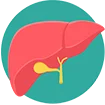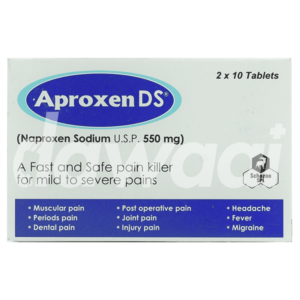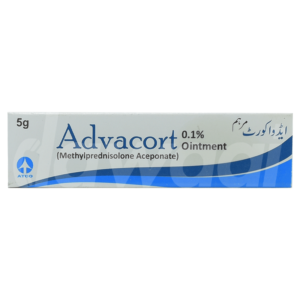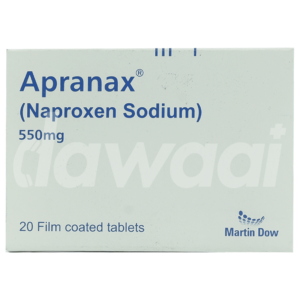Introduction
How To Use
- Take paracetamol by mouth with food as directed by the doctor.
- Swallow the tablet whole with water.
- Do not crush, chew, or split the tablet.
- Take paracetamol regularly to get the most benefit from it.
- To help remember, take paracetamol at the same time.
- Quantity is based on your medical condition and response to treatment.
- Do not increase your quantity or take this product more often than directed.
Expert Advice
- Tablets may be crushed or swallowed whole.
- Please immediately contact your doctor in case of any serious adverse effects.
- Avoid consumption of alcohol during use of this medicine.
- Drink plenty of water to prevent dehydration.
Primary Uses
Fever and pain
Indications
This medicine is used to treat acute and chronic (short and long term) painful muscular conditions, tension, headache, dysmenorrhea (painful menstruation), and non-articular rheumatism (a group of conditions characterized by muscular aches which do not arise from joints).
Side Effects
- This medicine has no known side effects. However if you do experience any unusual side effects please make sure to consult your doctor.
- An allergic reaction to this medicine is uncommon. If you do experience a rash, itching, swelling, dizziness or trouble breathing, seek medical attention immediately.
Warnings
 Pregnancy
Pregnancy
There is no evidence of risk associated with the use of this medicine in pregnant females. However, it is best to consult your doctor before use.
 Lactation
Lactation
The effects of this medicine in lactating females are undetermined. Therefore, please consult your doctor before use.
 Driving
Driving
Its use has shown a risk of drowsiness; therefore avoid using it while driving.
 Liver
Liver
Consult your doctor before using paracetamol for a better analysis if you have liver disease.
 Kidney
Kidney
Consult your doctor before using paracetamol for a better analysis if you have kidney disease.
 Alcohol
Alcohol
The use of alcohol should be limited or avoided while using paracetamol.
 Precautions
Precautions
Serious skin reactions may also occur with the use of this medication. Patients should be warned of the symptoms of such reactions and advised to discontinue the medication immediately if they appear. Patients with hypersensitivity or allergy to this medication should also be cautioned against its use. Patients should also inform their doctor of their complete medical history, especially any history of liver problems or alcohol abuse or if they have diabetes or any condition that requires them to avoid sugar. Consult your healthcare provider for more details.
Contraindications
This medication is contraindicated in patients with severe heart impairment, alcoholism (alcohol dependency), weight lower than 50 kg, renal (kidney) or hepatic (liver) impairment, malnutrition, dehydration, and anemia(lower than normal amount of red blood cells in the blood). Contact your healthcare provider for further information.
FAQS
How does this medicine work?
This medicine works by blocking (neurotransmitters) chemical messengers in the brain that inform us that we have pain. It also reduces fever by affecting the neurotransmitters in the area of the brain that manages or regulates body temperature.
Can I take this medicine for a long time?
It is not recommended to take this medicine for more than 3 days unless advised by your doctor otherwise.
What happens if you take this medicine for a long time?
Studies have shown that long term use of medicine is associated with a risk of adverse events such as heart attacks, bleeding inside the digestive system and hinders kidney function.
What are the signs of overdose of this medicine?
Having difficulty breathing and passing out are some signs of an overdose of this medicine.
What to do if you miss a dose of this medicine?
Please take your dosage as per the prescription. If you miss a dose, take it as soon as you remember. If the time for the next dose is close, take medicine normally. Do not double the dose.
Is aspirin safe in pregnancy and lactation?
It is best to avoid aspirin in pregnancy until the medical condition specifies so (for example to prevent early labor and preventing preeclampsia, low doses of aspirin are frequently delivered). High doses of aspirin should be strictly contraindicated in first and third trimesters, as it can result in pregnancy loss and congenital defects.
How does aspirin work?
Aspirin is a Non-Steroidal Anti Inflammatory Drug (NSAID). It has antiplatelet properties, thereby stops the platelets from sticking together and preventing the formation of a clot.
Can I take aspirin if I suffer from hypertension?
Low dose aspirin therapy may be given in hypertensive patients only if the blood pressure is strictly controlled.
Is aspirin safe for asthmatic patients?
Asthmatic patients can develop a reaction to aspirin if they are sensitive to it. It can cause an excess production of leukotrienes, which can result in bronchospasm. It is therefore best to avoid.
Can aspirin be used topically for acne or other skin diseases?
Because it contains acetyl salicylic acid, aspirin may be beneficial in treating topical skin infections, however not much research has been done to prove this.
Does aspirin work for a hangover headache?
Using an aspirin for a hangover headache should not be the primary choice. Since alcohol damages stomach lining, aspirin use can further aggravate the chances of stomach bleeding.
Should I take an aspirin if I frequently suffer from stomach ache and heartburn?
If you frequently suffer from a burning stomach ache and heartburn, there is a chance that you have developed a stomach ulcer, in which case aspirin should strictly be contraindicated.
Can I take aspirin after a dental extraction?
Consult your dentist before continuing aspirin after an extraction.
Indications:
This medication is primarily used for improving mental alertness. It may also be used for treating headaches and migraines in combination with other pain killers. It may be used by mouth for treatment of asthma, attention deficit hyperactivity disorder (ADHD), gall bladder disease, obsessive compulsive disorder (OCD), and low oxygen levels due to exercise, Parkinson’s disease, stroke, etc. It can be used for improving symptoms of type-2 diabetes, breathing problems in neonates, and weight loss. Caffeine creams are applied to reduce redness and itching in dermatitis. It now has other cosmetic used as well.
Storage:
Please store it at room temperature (18-25 Celsius) or refrigerate it depending on the form of caffeine you are taking. Keep medicine away from excessive light and moisture. Please keep it away from children.
Side Effects:
Restlessness and insomnia.
Effects on pregnancy and lactation:
This medicine should be used minimally during pregnancy. This medicine may pass into breast milk. There is no such evidence of harm to baby by caffeine during lactation. Consult your health care provider before use of this medicine.
Administration:
Caffeine is mostly taken orally in the form of tea, coffee, and other drinks. It may also be used rectally by/under the supervision of a medical professional. If being used for a medical purpose, the dosage is dependent on the age, condition and its severity. In such a case, consultation with a doctor is recommended before use.
Precautions:
Following are the precautions:
• Patients with kidney disease should be cautious
• Patients with central nervous system disorders should be cautious
• Patients with disorders associated to anxiety and depression should be cautious
• Patients with bleeding disorders should be cautious
• Patients with heart disease must be cautious
• Elderly
Disclaimer
Dawaai’s intention is to make sure that it’s consumers get information that is accurate, reviewed by an expert and error-free. However, the information mentioned here should not be used as a replacement for the advice of a qualified physician. The information given here is for informational purposes only, which may not cover all possible precautions, side effects, contraindications or drug interactions. Consult your doctor and discuss your queries related to any medicine or disease.






Reviews
There are no reviews yet.